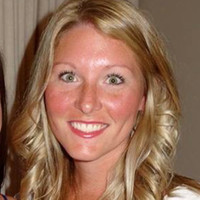Medically reviewed by Meghan Maynard Harlan. Last updated on April 26, 2025
General Illness Information
Medical Term:
ENCEPHALITIS ( VIRAL)
Common Name: None Specified
Description: An acute inflammation of the brain cells caused by a direct viral infection (primary encephalitis) or by a hypersensitivity reaction initiated by virus (secondary encephalitis). Secondary or post viral encephalitis usually occurs 2- 12 days after the primary viral infection. Meningeal, spinal cord and peripheral nerve involvement may accompany encephalitis.
Most cases of viral encephalitis are rare complications of common systemic virus infections.e.g. measles , chicken pox.
Causes: May be epidemic (affecting a significant number of people in a community) or sporadic (affecting some non-related persons).
- Epidemic causes: Arbovirus, enteroviruses, coxsackie viruses and echoviruses. Arboviruses are spread by mosquitoes usually in the warm summer months. Arboviruses include : St. Louis encephalitis, Eastern and western equine encephalitis, Japanese encephalitis, California encephalitis.
- Sporadic causes: Herpes simplex virus 1, Chickenpox, Measles, Rabies, Epstein Barr virus, HIV-1 virus and Creutzfeldt-Jacob Disease, a slow virus. The most common cause of acute sporadic encephalitis is Herpes simplex type 1.
Arboviruses are responsible for both sporadic and epidemic cases of encephalitis.
Prevention:
- Use insect repellent and mosquito netting if you travel to an area of risk.
- Avoid contact with anyone who has encephalitis. Consult medical help for treatment of any infection in your body especially those mentioned as causes, to attempt to prevent the spread of the infection.
- A vaccine is available in the United States for Arbovirus encephalitis. A dose of 1 ml. is given subcutaneously on days o, 3 and 20, with a booster 2 years later. It is recommended for summer travelers to rural areas of East Asia.
Signs & Symptoms
Mild cases:
- Headache, fever and general ill feeling.
Severe cases:
- Headache – severe.
- Vomiting.
- Stiff neck.
- Personality changes.
- Seizures.
- Pupils of different sizes.
- Occasional weakness or paralysis of an arm or leg.
- Double vision.
- Speech impairment.
- Hearing loss.
- Drowsiness that progresses to coma.
- Unconsciousness.
Risk Factors
- Crowded or unsanitary living conditions
- Adults over 60.
- Newborns and infants.
- Illness that has lowered immunity.
- HIV.
- Travel to endemic area.
- Exposure to vectors e.g. mosquitoes, tick etc.
Diagnosis & Treatment
- Diagnostic tests may include laboratory studies of blood and cerebrospinal fluid, skull X-ray, electroencephalography (study of the brain by measuring electric activity “brain waves”), CT scans and MRI.
- The serology tests on blood and spinal fluid may help in diagnosing specific types of encephalitis and thus may help in treatment.
- A CT scan of the brain may reveal the temporal lobe lesion indicative of herpes virus infection, but is more important in excluding mass lesions.
General Measures:
- Treatment involves appropriate medications depending on diagnosis. However, specific therapy for majority of causative viruses is not available.
- Supportive care is very important. Supportive measures include reduction of intracranial pressures (with intravenous mannitol); controlling seizures; maintenance of airway; administration of oxygen, and attention to adequate nutrition during period of prolonged coma. It is also very important to prevent or start early treatment of pressure sores (bed sores), pneumonia and urinary tract infections.
Medications:
- Acetaminophen for headache or fever.
- Antiviral drugs, such as acyclovir or amantadine, may be prescribed (intravenously if severe encephalitis).
- Cortisone drugs to suppress inflammation (rare).
- If tests indicate a bacterial or fungal cause, then specific medicine for that organism, if available, will be started. No antiviral agent is effective for arbovirus encephalitis; acyclovir is effective only for herpes simplex encephalitis.
Activity:
Bed rest and a 2 to 3 week recovery. You should be as active as your strength and feeling of well-being allow.
Diet:
No special diet. May require intravenous fluids. Medical personnel will monitor fluid and electrolyte levels.
Possible Complications :
Varies depending on the cause of the encephalitis. Usually a very small percentage of patients suffer permanent brain damage that impairs mental or muscle functions.
Prognosis
Mild viral encephalitis is common and may go unnoticed. Severe cases usually require hospitalization. Complications and fatalities from encephalitis are most common in infants and the elderly. People in other age groups usually recover completely. Unless the attack is severe, you can expect full recovery within 2 to 3 weeks.
Other
‘Nothing Specified’.



